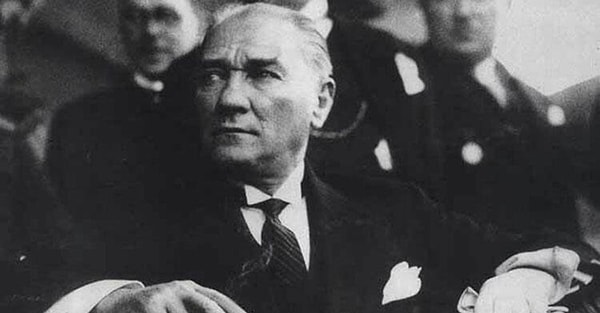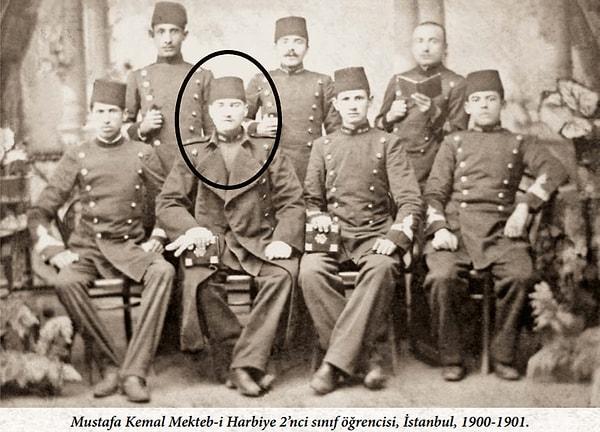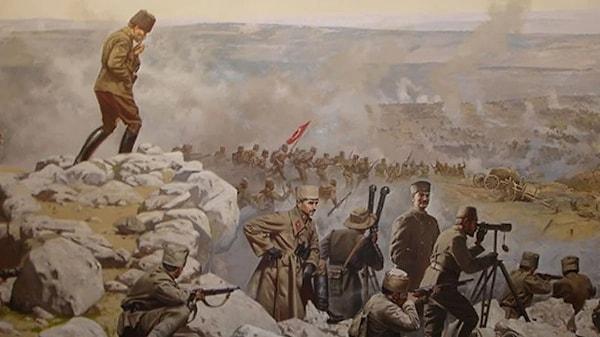In the annals of history, there are a select few individuals whose visionary leadership and unwavering determination shape the destiny of nations. One such indomitable figure is Mustafa Kemal Atatürk, the founding father of modern Turkey. Atatürk's legacy resonates far beyond his time, leaving an enduring impact on the Turkish people and the nation he passionately worked to build. As the driving force behind the Turkish War of Independence and the mastermind behind Turkey's transformation into a modern, secular republic, Atatürk's life and achievements stand as a testament to the transformative power of courage, intellect, and the unyielding pursuit of progress. This comprehensive exploration delves into the life, ideology, and profound influence of Mustafa Kemal Atatürk on the birth and development of the Republic of Turkey.
Atatürk: The Founding Father of Modern Turkey

Early Life and Military Career

Mustafa Kemal Atatürk was born on May 19, 1881, in Salonica (now Thessaloniki, Greece) during the waning days of the Ottoman Empire. Growing up in a rapidly changing world, young Mustafa was exposed to a diverse array of cultures and ideas, shaping his perspective on the evolving geopolitical landscape. He displayed exceptional intelligence and leadership skills from an early age, earning him a spot at the prestigious Military Academy in Istanbul.
Atatürk's military career flourished as he rose through the ranks, proving himself as a talented and courageous military officer. His strategic brilliance was evident during his service in the Ottoman Empire's defense of Gallipoli during World War I. Although the war ended in defeat for the Ottomans, Atatürk's military prowess and unwavering determination would soon be put to the ultimate test.
The Turkish War of Independence

The end of World War I marked a tumultuous period for the Ottoman Empire. As the empire crumbled, its territories faced the prospect of being carved up by foreign powers. In the face of adversity, Mustafa Kemal Atatürk emerged as the charismatic leader rallying the Turkish nation to fight for its independence.
Leading the Turkish National Movement, Atatürk spearheaded the resistance against occupying Allied forces. His unparalleled leadership and military acumen led to a series of successful battles, most notably the Battle of Sakarya, which halted the invading Greek forces. The turning point came on October 29, 1923, when the Republic of Turkey was officially proclaimed, and Atatürk assumed the role of its first President.
Secularism and Modernization
As the founding president of the new republic, Atatürk embarked on a transformative journey to modernize Turkey and sever its ties with the Ottoman past. His vision for the nation was rooted in the principles of secularism, nationalism, and republicanism. One of his first acts was to abolish the caliphate, separating religion from the state and ushering in an era of progressive reforms.
Atatürk initiated sweeping changes in law, education, and society, aimed at aligning Turkey with the values of Western civilization. He introduced the Swiss Civil Code, granting women equal rights in marriage and divorce, and adopted the Latin alphabet to replace the Arabic script. Under his guidance, the nation underwent a radical transformation, transitioning from a theocratic empire to a modern and secular republic.
Women's Rights and Social Reforms
Atatürk's profound commitment to gender equality remains one of the most remarkable aspects of his legacy. He was a staunch advocate for women's rights and took decisive steps to elevate the status of women in Turkish society. Women were granted the right to vote in 1934, making Turkey one of the first countries to grant universal suffrage to women. Atatürk believed that a society's progress was intrinsically linked to the empowerment of its women, and he actively encouraged their participation in all aspects of public life.
Legacy and Impact
Mustafa Kemal Atatürk's untiring efforts to shape Turkey into a modern nation earned him enduring respect and admiration from his countrymen. His transformative leadership, profound vision, and unwavering dedication to the principles of secularism, nationalism, and modernization have left an indelible mark on Turkey's identity.
Even after his passing in 1938, Atatürk's spirit continues to guide Turkey's path. His mausoleum, the Anıtkabir, in Ankara stands as a testament to his lasting impact on the nation. Atatürk remains an iconic figure in Turkey's history, celebrated on national holidays and revered as the 'Father of the Turks' (Atatürk), a title that embodies the love and admiration the Turkish people hold for their founding father.
Turkey's One and Only
Mustafa Kemal Atatürk's legacy as the founding father of modern Turkey transcends his military victories and political achievements. His vision and determination transformed a fragmented and defeated nation into a modern, secular republic, carving a path for progress, equality, and national pride. Atatürk's ideals continue to inspire generations of Turks, serving as a guiding light as they strive to uphold the principles of a progressive and forward-looking Turkey. The legacy of Atatürk, a true visionary and nation-builder, will forever remain imprinted on the heart and soul of the Republic of Turkey.

